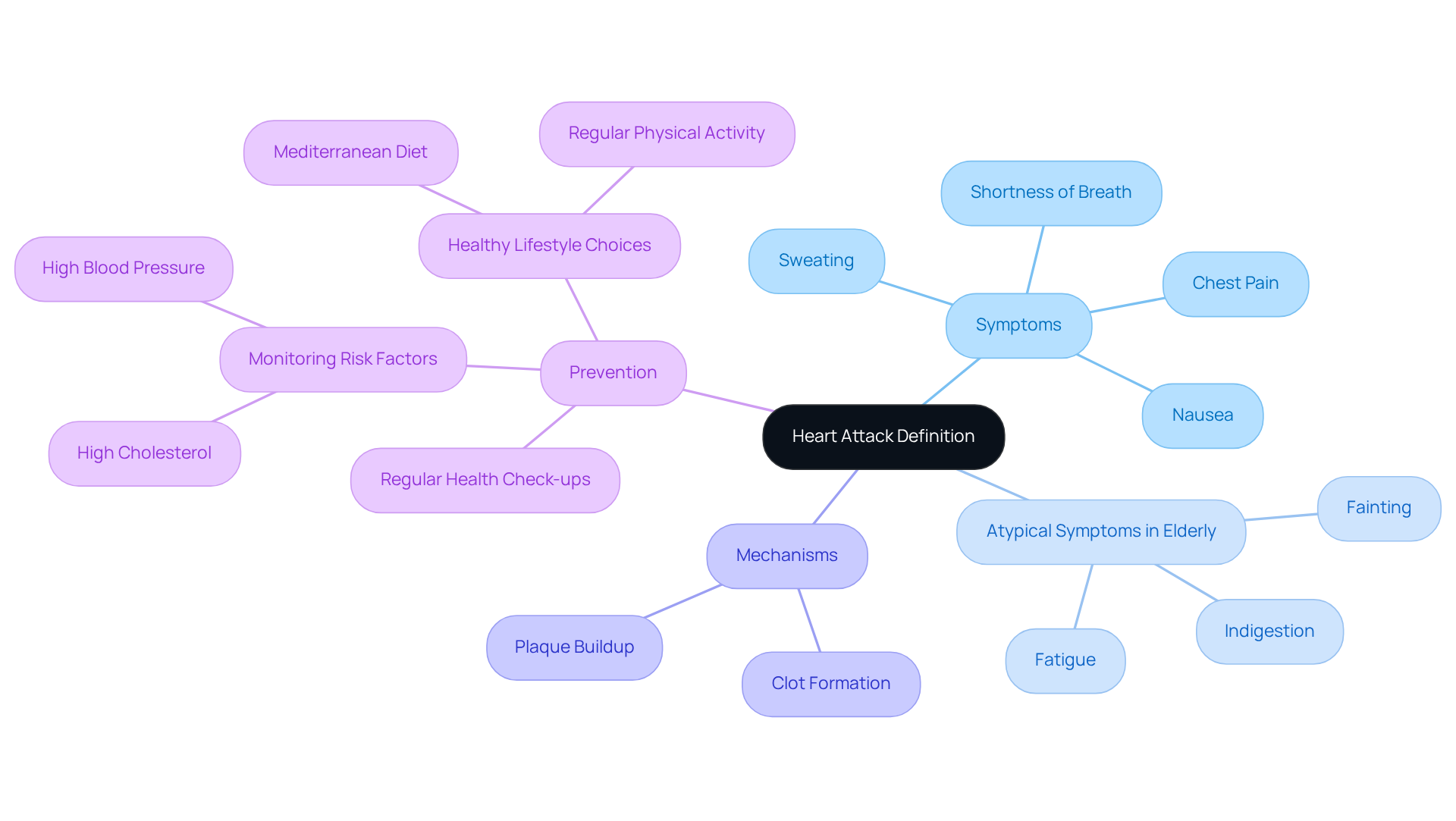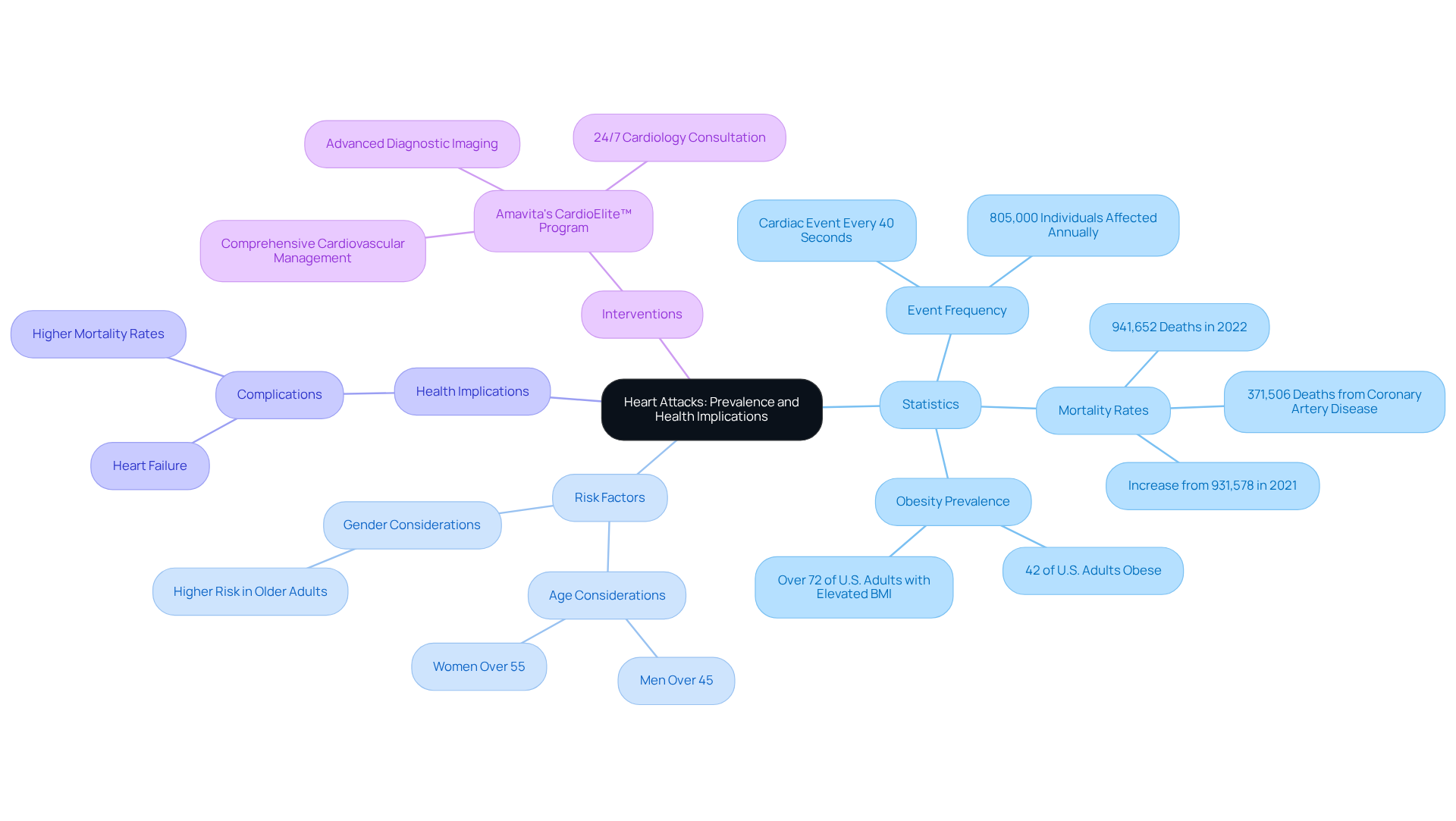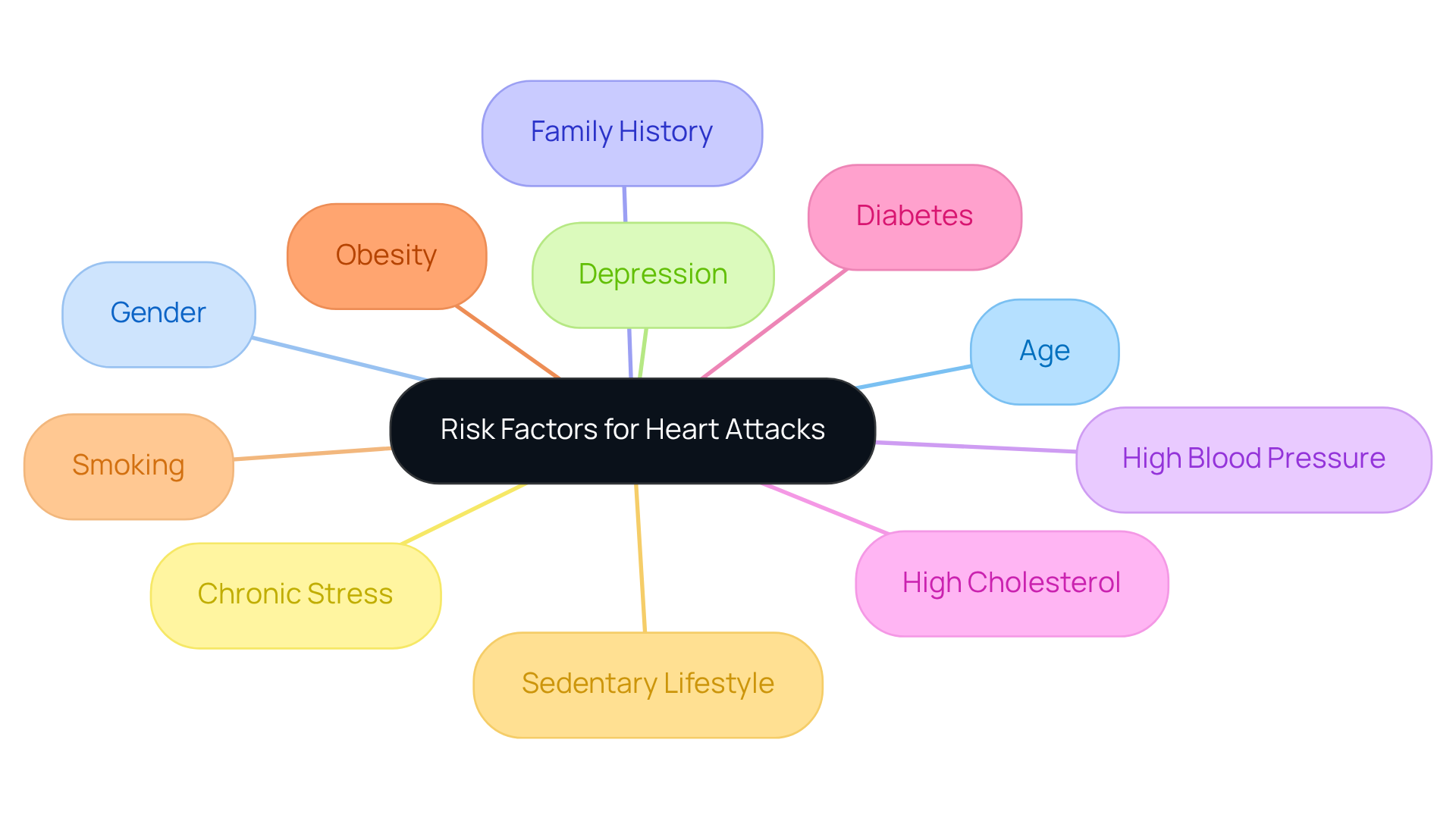


This article gently explores the definition of a heart attack and its significant implications for seniors. It emphasizes the critical importance of recognizing both typical and atypical symptoms, which can sometimes be overlooked. Heart attacks occur when blood flow to the heart muscle is blocked, potentially leading to serious injury or even death. Therefore, it is vital for seniors to be aware of these symptoms so they can seek timely medical attention. Many cardiac events go unnoticed in this demographic, which underscores the need for vigilance and understanding. Remember, being informed is the first step towards ensuring your health and safety.
Understanding the definition of a heart attack is crucial, especially for seniors who encounter unique risks associated with this life-threatening event. As cardiac incidents become more common, being aware of symptoms and risk factors can greatly influence outcomes for older adults. You may be wondering: how can the subtle signs of a heart attack be recognized, particularly when they often differ from typical presentations? This article explores the essential characteristics, mechanisms, and preventive measures related to heart attacks, offering valuable insights to empower seniors and their caregivers in safeguarding their cardiovascular health. Together, we can navigate these concerns and work towards a healthier future.
A cardiac event, commonly referred to as the , occurs when circulation to a part of the heart muscle is significantly reduced or completely blocked, often due to a clot. This blockage prevents oxygen-rich blood from reaching the cardiac tissue, which of the muscle. Common symptoms to watch for include:
For our elderly patients, can be particularly challenging, as they may present in less typical ways. Research shows that older adults often experience signs such as:
These atypical presentations can delay seeking the necessary medical attention. Alarmingly, about 170,000 of the 805,000 cardiac events in the U.S. each year , highlighting the importance of awareness among seniors.
that understanding the heart attack definition and how heart attacks occur is crucial for prevention and . For instance, the buildup of plaques in arteries can rupture, leading to clots that obstruct blood flow. This process underscores the necessity of and like high cholesterol and blood pressure.
In summary, being aware of the key characteristics and mechanisms related to the heart attack definition is vital for seniors. to symptoms can greatly enhance outcomes. Remember, you are not alone in this journey; seeking help and staying informed can make a significant difference in your health and well-being.

The highlights that are a leading cause of mortality worldwide, significantly impacting public health, especially among our senior citizens. In the United States, a cardiac event occurs every 40 seconds, affecting around 805,000 individuals each year. According to the heart attack definition, the risk increases with age, particularly for men over 45 and women over 55, making it vital for seniors to be aware of these risks. For this demographic, understanding the heart attack definition is crucial, as cardiovascular incidents can lead to serious complications, including heart failure and . Alarmingly, fatalities from cardiovascular disease rose from 931,578 in 2021 to 941,652 in 2022, underscoring the growing impact of cardiac events on public health. Furthermore, alone accounted for 371,506 deaths, highlighting the severity of cardiac arrests specifically.
Approximately 42% of U.S. adults meet the criteria for obesity, a that can particularly affect older adults. The American Heart Association emphasizes that through tailored interventions is essential for improving health outcomes in this population. Amavita's exemplifies this compassionate approach by offering comprehensive cardiovascular management that integrates advanced diagnostic data, AI technology, AHA certification, and 24/7 cardiology consultation. This program enhances proactive patient management and reduces the burden on emergency services. Additionally, it provides and minimally invasive procedures, ensuring effective treatment options for older adults.
By recognizing the prevalence and health implications of cardiac incidents, seniors can make informed decisions based on the heart attack definition for better cardiovascular health. Understanding these statistics is crucial for both seniors and their caregivers, as it highlights the and proactive lifestyle changes. Remember, taking action towards your heart health is a sign of strength, and support is always available to guide you on this journey.

As we age, various , especially for older adults. It's important to be aware of contributors such as:
Furthermore, . Studies reveal that individuals facing prolonged stressors have a 2.4 times higher likelihood of cardiac events.
Seniors, in particular, are vulnerable due to the cumulative effects of these factors over time. This makes it essential to . Cardiologists emphasize that the choices made in one's 20s and 30s lay the groundwork for in later years. This highlights the importance of being aware and taking early on.
Understanding these is crucial for older adults. By seeking and implementing effective preventive measures, you can take control of your . Remember, you are not alone in this journey— are available to help you navigate these challenges with confidence.

, which relates to the , can be particularly challenging for elderly individuals, and it's important to approach this topic with care. While chest discomfort is the most commonly reported symptom, older adults may experience more subtle signs such as:
Additionally, discomfort may manifest in the:
Along with cold sweats and nausea. At Amavita Heart and Vascular Health®, we understand the heart attack definition can present differently in older adults. That's why we offer designed to enhance .
Our innovative Amavita CardioElite™ program features a portable, FDA-cleared that provides real-time guidance and accurate imaging. This ensures that seniors and their caregivers can promptly recognize these symptoms. Awareness of these signs is crucial; can be lifesaving, leading to quicker medical intervention and better outcomes. We encourage you to stay informed and reach out for support, as we are here to help you navigate your health with compassion and understanding.

Understanding the definition of a heart attack is crucial for seniors, as it empowers them to recognize warning signs and take proactive steps toward better heart health. By grasping the mechanisms behind cardiac events, older adults can appreciate the importance of timely medical intervention and lifestyle adjustments that can significantly reduce their risk.
The article highlights several key points, including:
It emphasizes the need for awareness, regular health screenings, and the importance of addressing risk factors such as obesity, high blood pressure, and stress. By being informed, seniors can navigate their health more effectively and seek help when necessary.
Ultimately, the significance of understanding heart attacks cannot be overstated. Seniors and their caregivers must prioritize heart health by recognizing symptoms, monitoring risk factors, and seeking timely medical advice. Taking these steps not only enhances individual well-being but also contributes to a healthier community. Empowerment through knowledge is a vital tool in the journey toward cardiovascular health, ensuring that no one faces these challenges alone.
What is a heart attack?
A heart attack occurs when circulation to a part of the heart muscle is significantly reduced or completely blocked, often due to a clot, preventing oxygen-rich blood from reaching the cardiac tissue.
What are the common symptoms of a heart attack?
Common symptoms include chest pain or discomfort that may radiate to the arms, neck, jaw, or back, shortness of breath, sweating, and nausea.
How do heart attack symptoms differ in elderly patients?
In elderly patients, heart attack symptoms may present atypically, such as fatigue, indigestion, and fainting, which can make recognition more challenging.
Why is it important to recognize heart attack symptoms in seniors?
Recognizing heart attack symptoms in seniors is crucial because about 170,000 of the 805,000 cardiac events in the U.S. each year go unnoticed, which can delay necessary medical attention.
What mechanisms lead to a heart attack?
A heart attack can occur when the buildup of plaques in arteries ruptures, leading to clots that obstruct blood flow to the heart muscle.
How can heart attacks be prevented?
Prevention involves regular health check-ups and monitoring risk factors such as high cholesterol and blood pressure.
What is the importance of being aware of heart attack characteristics?
Being aware of heart attack characteristics and mechanisms is vital for early recognition and timely response, which can greatly enhance health outcomes.